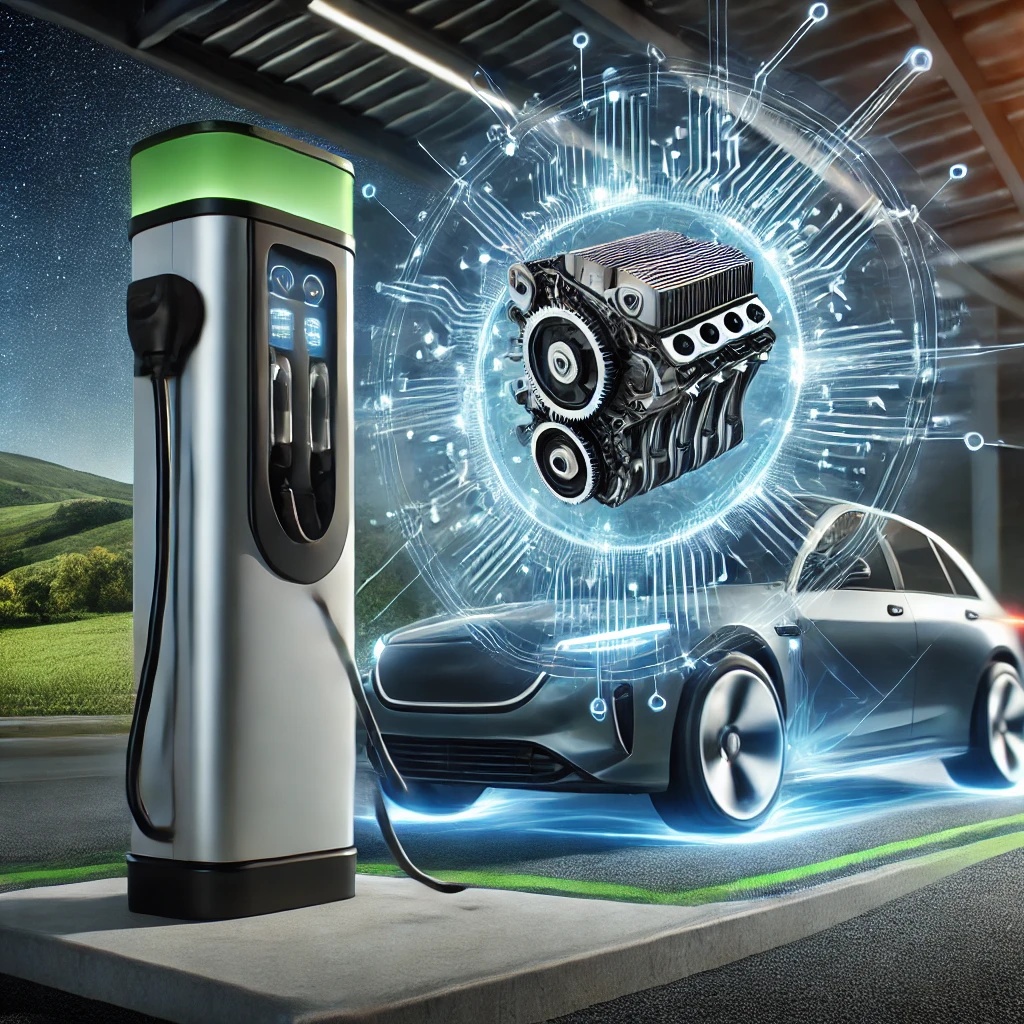The Power of Electric Motors: Eco-Friendly Driving and Performance

The automotive world is undergoing a significant transformation in recent years. Electric vehicles (EVs) have become a key alternative to traditional internal combustion engines, offering eco-friendly features and high performance. Electric motors not only protect the environment with zero emissions but also provide drivers with an exceptional driving experience. In this blog post, we will take a closer look at the power of electric motors, their environmental contributions, and performance characteristics.
Electric Motors: A Clean and Powerful Alternative
Electric motors work by drawing power directly from batteries and do not use fossil fuels in the process. Unlike internal combustion engines, electric motors operate far more efficiently and produce zero emissions, which means they do not pollute the environment. This is a significant advantage for those seeking solutions to environmental issues like climate change and air pollution. Electric motors are not only environmentally friendly but also offer performance that delivers an impressive driving experience.
Eco-Friendly: Zero Emissions for a Cleaner Future
One of the biggest advantages of electric vehicles is that they operate with zero emissions. Unlike internal combustion engines, they do not emit exhaust gases or carbon dioxide. This helps improve air quality in cities and plays an essential role in the fight against global warming by reducing carbon dioxide emissions. Electric motors reduce dependence on fossil fuels, offering a sustainable transportation alternative.
The batteries in electric vehicles provide a significant opportunity to achieve a zero-emission driving experience. However, the source of the energy used for electricity production is crucial. Vehicles charged with renewable energy sources (such as solar, wind, and hydroelectric) offer an even more eco-friendly option.
Electric Motor Performance: Instant Torque and Silent Driving
The performance of electric motors is one of the elements that dramatically change the driving experience. Electric motors operate far more efficiently than internal combustion engines. This efficiency shows up in the acceleration and torque production of electric vehicles. Electric motors have the ability to produce instant torque, meaning they generate full power as soon as the motor begins to accelerate. This feature provides drivers with a seamless and quick acceleration experience. In contrast, internal combustion engines typically take longer to reach full power, as the engine speed must increase.
Additionally, the quiet operation of electric motors is quite remarkable. Internal combustion engines often produce noise and vibrations, while electric motors are extremely quiet. This allows for a more peaceful and comfortable driving experience. In urban areas, this silence reduces noise pollution and improves the quality of life.
Battery Technology and Range: The Future of Electric Vehicles
In addition to performance, advancements in battery technology play a significant role in the development of electric motors. The range of electric vehicles is dependent on the capacity and efficiency of their batteries. In recent years, rapid advancements in battery technology have led to longer ranges and faster charging times. Today, many electric vehicles can travel over 300 kilometers on a single charge. These developments have made electric vehicles much more practical for everyday use.
In the future, battery technologies will continue to evolve, providing vehicles with longer ranges and reducing dependence on charging stations. Additionally, faster charging capabilities will make the driving experience even more convenient and accessible.
Economic Benefits of Electric Motors
In addition to their environmental benefits and high performance, electric motors also offer significant economic advantages. Electric vehicles generally have lower maintenance costs compared to internal combustion engine vehicles, as they contain fewer moving parts. The simpler design of the motor means less wear and tear, as well as fewer breakdowns, leading to a longer lifespan.
Furthermore, electric vehicles reduce reliance on fossil fuels, which significantly lowers fuel costs. Charging an electric vehicle is much cheaper than refueling a gasoline or diesel car. The fact that electricity is much cheaper than gasoline or diesel provides long-term savings for electric vehicle owners.
Future Trends: The Evolution of Electric Motors
The future of electric motor technology continues to revolutionize the automotive industry. Improvements in battery efficiency and range will further enhance the performance of electric motors. Additionally, the expansion of charging infrastructure powered by renewable energy sources will make electric vehicles even more sustainable.
Advanced autonomous driving and artificial intelligence technologies will make the driving experience of electric vehicles safer and more efficient. Further optimization of electric motors will elevate vehicle acceleration, range, and efficiency to even higher levels.
Conclusion: A Strong and Sustainable Future with Electric Motors
Electric motors are creating a significant shift in the automotive industry by combining eco-friendly driving with exceptional performance. Offering zero emissions and high efficiency, electric motors protect the environment while providing drivers with a more dynamic driving experience. With advances in battery technology, electric vehicles will offer longer ranges and shorter charging times, making them the future of transportation. As environmental awareness increases, electric motors will become more widely adopted, helping create a cleaner transportation network worldwide.
Electric motors not only protect the environment but also offer an exciting driving experience and economic advantages to drivers. With their unique characteristics in both environmental and performance aspects, electric motors will play a significant role in the future of the automotive industry.










